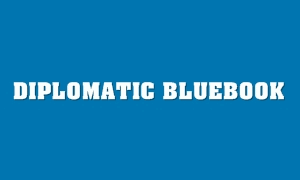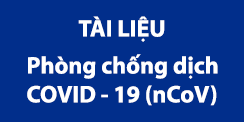1/ Given its complex developments, the COVID-19 pandemic has emerged as a non-traditional security challenge with profound and unprecedented implications. Could you tell us about Viet Nam's efforts in information sharing and assisting others in the international community with medical supplies and resources in order to overcome the pandemic together?
- The COVID-19 pandemic has emerged as an unprecedented non-traditional security challenge, causing far-reaching impacts on economies and societies around the globe. Understanding that the pandemic spares no one and affects everyone, and as a responsible member of the international community, Viet Nam has recognized the need for international cooperation in the fight against the pandemic and gave it due priority.
(i) We actively exchanged information and experience with others at bilateral and multilateral platforms, particularly in our roles as the ASEAN Chair and a UNSC non-permanent member. The leaders of the Government and the Ministry of Foreign Affairs had telephone conversations with leaders of 29 countries and international organizations, and attended 21 international virtual conferences to discuss global cooperation against the pandemic. Prime Minister Nguyen Xuan Phuc issued the Chairman’s Statement on ASEAN Collective Response to the Outbreak of Coronavirus Disease 2019, and successfully chaired the special ASEAN and ASEAN+3 Summits. He also addressed the G20 and Non-Aligned Movement summits and the World Health Assembly on COVID-19 combat.
(ii) In line with the Vietnamese tradition of “mutual assistance and solidarity”, we sympathized with the hardships of all others amid the pandemic, and therefore, earnestly made practical contributions to the combat against COVID-19 in the region and the world. The Government, the National Assembly, the Ministries, agencies, friendship associations and the entire Vietnamese people have all engaged in multiple forms of cooperation and offered assistance, in kind and money, to 25 countries and international organizations. Most remarkable was the donation and export of medical equipment and supplies produced by Viet Nam – face-masks, personal protective equipment and test kits – worth millions of USD.
At the same time, we also received invaluable support and assistance from friends in the international community. We have been working closely with the relevant international organizations, particularly the WHO and other countries in devising proper treatment protocol and developing vaccine for COVID-19.
- Viet Nam's sincerity and remarkable efforts in international cooperation and assistance were recognized by the public at home and overseas. Leaders of various countries have expressed their appreciation and gratitude for our assistance and sympathy in this time of great adversity.
- With keen sense of responsibility, especially as the ASEAN Chair and a UNSC non-permanent member, Viet Nam seeks to promote stronger international cooperation in sharing information and experience, pooling resources, and developing vaccine, medication and treatment protocol, with a view to contain and control this dangerous pandemic. This cooperation should also aim to restore the global supply chain, and resume the flow of goods, economic and trade activities in order to revive the global and national economies.
2. Please tell us about Viet Nam's experience in working with other countries in the citizen protection, particularly during emergencies during the recent COVID-19 outbreak?
- COVID-19 is a dangerous and unprecedented pandemic. It has taken heavy toll on the global economy and society, and adversely affected people around the world. Meanwhile, as our international integration grows deeper and broader, so is our people's demand for traveling abroad – to study, to work, for business, leisure, family visit, and medical treatment. This has resulted in unprecedented incidents in our citizen protection. For instance, many had been stranded at foreign airports as carriers stopped operation and borders were closed down. Many lost their jobs and encountered accommodation– and visa-related difficulties. Students had their dormitories closed down and had limited access to medical treatment, to name just a few.
- Against that backdrop, as soon as the disease emerged, the Ministry of Foreign Affairs instructed the Vietnamese representative missions to step in with all haste to support Vietnamese nationals who were abroad. Their missions are to remain steadfast at their posting, particularly where the Vietnamese community is numerous, and offer direct citizen protection, or collaborate with the local authorities to provide support to Vietnamese nationals in terms of accommodation, employment and healthcare.
Most notably, the Vietnamese representative missions actively worked with the local authorities to request licensing of commercial flights to repatriate Vietnamese citizens on humanitarian ground. As of today, the Ministry of Foreign Affairs has collaborated with other Vietnamese and foreign competent authorities to safely repatriate 6,400 citizens from 21 countries via 25 flights. The returnees were among the priority groups, including the elderly, children under 18, the infirm, those with underlying health conditions, and other persons from special backgrounds.
- As far as foreign nationals in Viet Nam are concerned, we have facilitated their visa extension and accommodation, while assisting foreign missions in Viet Nam in their citizen protection, including in repatriation of their respective nationals. The Vietnamese people throughout the country also provided much assistance to the foreign nationals stranded or in distress in Viet Nam.
- We also invested much effort to treat foreign nationals in Viet Nam infected with COVID-19, and most cases have recovered. The infected British pilot was in critical situation, yet thanks to the dedication of Vietnamese health workers, his conditions have significantly improved. Many Vietnamese citizens and businesses expressed their willingness to raise funds for his treatment, even offering their own lungs if that would save the patient.
3. How has the COVID-19 pandemic affected the international and regional landscape, and in particular, the Vietnamese diplomacy in 2020? What are the major directions of the Vietnamese diplomacy in the time to come, especially in the context of emergent issues such as maritime security and stability, promotion of multilateral trade, or the sustenance of the regional supply chain?
- The COVID-19 pandemic has exerted far-reaching impacts on every aspect of the global and regional economies and societies. Some said that the “crisis” triggered by COVID-19 may be more severe and more sweeping than the Great Depression of 1929-1933. Most economies around the world, including ASEAN countries, have been outstretched in responding to the pandemic’s adverse impacts – negative growth, stagnant production, trade and business activities, and disrupted supply chains, among others.
- This has affected many of Viet Nam’s plans for foreign affairs. The overseas trips of Vietnamese leaders and the visits of foreign leaders to Viet Nam, ASEAN meetings at all levels to be held in Viet Nam under our chairmanship, and various meetings of the UNSC had to be rescheduled.
- However, in the spirit of “turning crisis into opportunities”, Viet Nam has been active and innovative in switching the mode of the diplomatic activities in line with the new normal in order to realize the major goals of our country for 2020 and the years to come. Specifically:
(i) We seek to work alongside other countries to contribute substantially to preserving the environment of peace, security and stability in the region. Top priority is given to keeping the pandemic under complete control while promoting economic recovery and development, and sustaining social stability.
(ii) We also pursue international cooperation in response to COVID-19 by exchanging information and coordinating policies and actions at bilateral and multilateral platforms. We also strive to make sure that the major initiatives and outcomes agreed by ASEAN leaders at the recent ASEAN summits are well realized.
(iii) We will continue pursuing the two-fold goal of combating the pandemic while promoting rapid and sustained economic recovery. The flow of commerce is to be resumed with partners who managed to keep the pandemic under good control. Opportunities from Free Trade Agreements such as the Comprehensive and Progressive Agreement for Trans-Pacific Partnership (CPTPP) and the EU – Viet Nam Free Trade Agreement (EVFTA) are to be effectively harnessed. Efforts are being made to expedite the signing of the Regional Comprehensive Economic Partnership (RCEP) and the negotiation with the Southern Common Market (MERCOSUR) and other partners, and to capitalize on the shifting flow of investment from development partners and multinational corporations.
(iv) Under the instructions of the Government, the Ministry of Foreign Affairs has been coordinating closely with other competent authorities to mitigate difficulties in production, facilitate trade, maintain existing markets and explore new ones with a view to assisting businesses and workers. This is one way to secure social protection.
(v) We are also committed to our agenda and deliverables in foreign affairs, in particular, to fulfilling our major international duties such as the ASEAN Chairmanship 2020 and the UNSC non-permanent membership for 2020 - 2021.
4. As the pandemic rages on, Viet Nam has effectively showcased its role as the incumbent ASEAN Chair. Please tell us more about these efforts and the priority agenda items for the ASEAN Summit scheduled in June in Viet Nam in June?
Viet Nam is assuming the ASEAN Chairmanship in a challenging landscape as the COVID-19 pandemic continues to unfold in complex and unpredictable manner. However, we have made significant efforts in our role as the ASEAN Chair, particularly in promoting ASEAN’s solidarity and collective response to the pandemic. In the spirit of “Cohesive and Responsive”, ASEAN, under Viet Nam’s Chairmanship, has adopted flexible measures to step up cooperation, including discussion via online meetings, decision-making via written feedbacks, and direct communication via electronic means, hence the following encouraging outcomes:
- Viet Nam had acted quickly in issuing the Chairman’s Statement on ASEAN Collective Response to the Outbreak of Coronavirus Disease 2019, convening a meeting of the ASEAN Coordinating Council (ACC), and forming the ACC Working Group on Public Health Emergencies at the Deputy Ministerial level. We also hosted several ASEAN meetings with its partners, including China, the US, the EU, and such international organizations as the World Health Organization (WHO).
- Most notably, Viet Nam successfully hosted the Special ASEAN and ASEAN+3 Summits on COVID-19 on 14 April 2020. The events were attended by the leaders of the ten ASEAN countries, the Premier of China, the Prime Minister of Japan, the President of the ROK, the ASEAN Secretary General, and the Director-General of the WHO. The Summits adopted an array of initiatives and deliverables, such as the establishment of a ASEAN COVID-19 Response Fund, a regional reserve of medical supplies, and the formulation of an ASEAN Standard Operating Procedure (SOP) for Public Health Emergencies and the ASEAN post-pandemic recovery plan.
- In healthcare cooperation, ASEAN has activated the regional information networks in healthcare and emergency response, established a portal on the official ASEAN website to publicize the measures undertaken by the ASEAN healthcare channel, and completed a Risk Assessment for International Dissemination of COVID-19 to the ASEAN Region, to name a few.
- Previously, in early 2020, Viet Nam successfully hosted several important meetings, such as the ASEAN Foreign Ministers’ Retreat (AMM Retreat) (Nha Trang, 15-17 January 2020), the ASEAN Defense Ministers' Retreat (Hanoi, 19 February 2020), and the ASEAN Economic Ministers' Retreat (Da Nang, 10 March 2020).
Due to the complex developments of the COVID-19 pandemic in the region and the world, the 36th ASEAN Summit and its related meetings have been rescheduled until late June in Da Nang. Viet Nam is actively preparing for the organization of this Summit, and is consulting with fellow ASEAN members the tentative agenda and schedule of activities to ensure the success of the event./.



